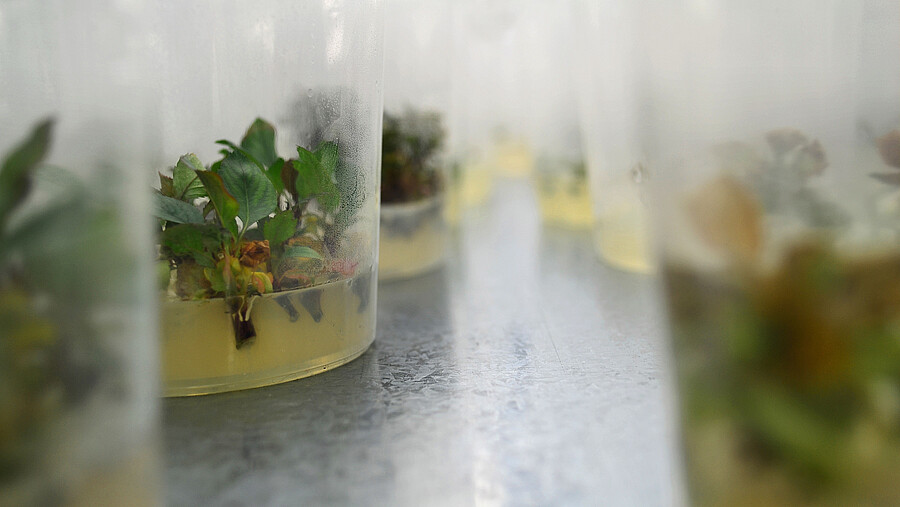Plant Biotechnology
(Master of Science)
Profile
German HZB: none
International application: German C1
Find out more
Stay abroad possible, but not obligatory.
Short Description
The degree programme takes an applied and strongly research-based approach. The main aim of the degree programme is to teach students new insights into the development, optimisation and use of biotechnological processes to foster innovation and improve the efficiency of plant production. Consequently, the programme focuses on giving students a general understanding of modern genetic methods and their use for integrated plant production, with special reference to molecular and physiological aspects. As a whole, the programme is primarily designed to prepare graduates for conducting research projects independently.
The areas of application involved in plant biotechnology are: development of new plant propagation techniques, acceleration and support of traditional methods of plant breeding using biotechnological methods, identification and isolation of agronomically relevant plant genes, creation of plants that are resistant to pathogens and pests, enhanced tolerance to abiotic stress, as well as improved internal and external quality, optimisation of recycling processes and the production of renewable raw materials and development of plants as a source of pharmaceutically and technically valuable raw materials.
Course Content
- Development and application of biotechnological methods and genetic engineering
- The teaching of problem-solving skills in the area of modern plant production
- Technological impact assessment and the biological safety of plants
- Development of the ability to devise biotechnological issues and experimental strategies
- The ability to gain scientific results, to place them in an appropriate context and to communicate the results both orally and in writing
The Master’s degree programme in Plant Biotechnology is an academic programme involving a high level of basic research.
The standard period of study for the Master’s degree programme in Plant Biotechnology is four semesters, consisting of a flexible introductory phase (first academic year), followed by a specialisation phase (second academic year).
In the first and second semesters, students are given a portfolio of compulsory elective modules in which molecular biological/biochemical content is taught in addition to aspects related to plant production. These modules represent the priority themes of the three majors: Plant Molecular Biology, Plant Physiology and Plant Production.
In the second academic year, the compulsory area leads to individual specialisation in the chosen major, which concludes with a Master’s thesis in the area of specialisation.
- An understanding of the fundamentals of plant biotechnology
- An interest in subject-specific and research-oriented interrelations
- Research, development and quality assurance in molecular biological basic research as well as in the plant biotech industry
- University and non-university research
- Activities in cultivation or biotech companies, e.g. breeding, seed and plant protection companies, propagation and seedling nurseries and companies that produce end products
- Activities in the service sector and in agencies in Germany and abroad
- Company start-ups
Admission Requirements
An undergraduate degree in a related field of study, such as
- Biology (Bachelor of Science)
- Life Science (Bachelor of Science)
- Molecular and Applied Plant Science (Bachelor of Science)
- Plant Biotechnology (Bachelor of Science)
For master's degree programmes with unrestricted admission, all applicants who fulfil the admission requirements will be admitted a university place. The exact admission requirements can be found in the admission regulations:
Application Deadlines
First-year students from Germany and the EU
- 1 June – 15 July of the year for the winter semester
- 1 December – 15 January of the year for the summer semester
First-year students from non-EU countries (VPD from uni-assist is required)
- 15 April – 31 May of the year for the winter semester
- 15 October – 30 November of the previous year for the summer semester
Students resuming their studies and transfer students from Germany and the EU (application in a higher semester)
- 1 June – 15 July of the year for the winter semester
- 1 December – 15 January of the year for the summer semester
Students resuming their studies and transfer students from non-EU countries (application in a higher semester)
- 15 April – 31 May of the year for the winter semester
- 15 October – 30 November of the previous year for the summer semester
Do you have questions about studying? We are happy to help!

30167 Hannover

30167 Hannover









